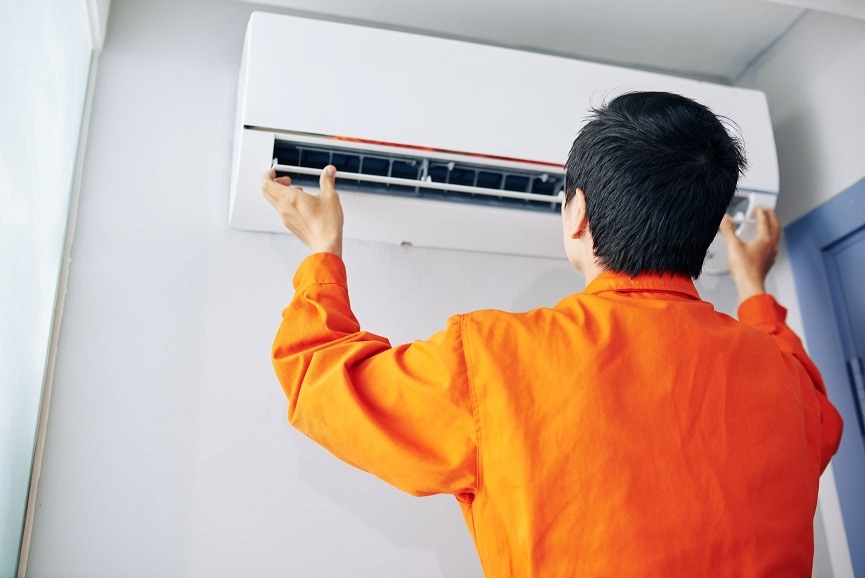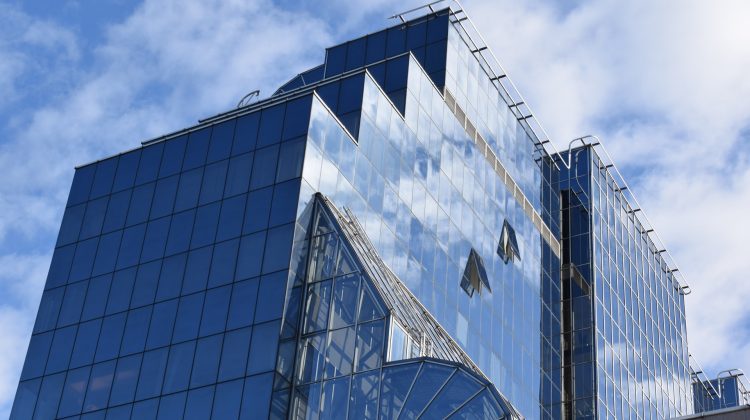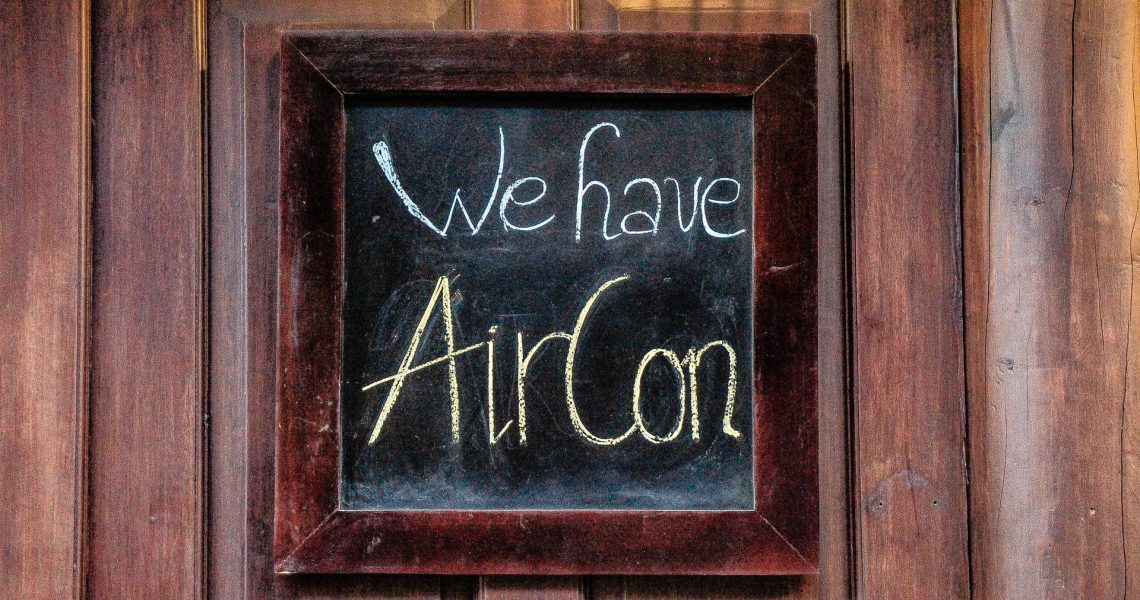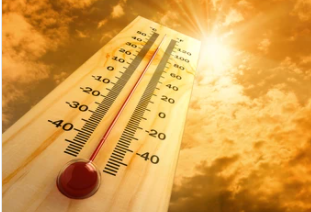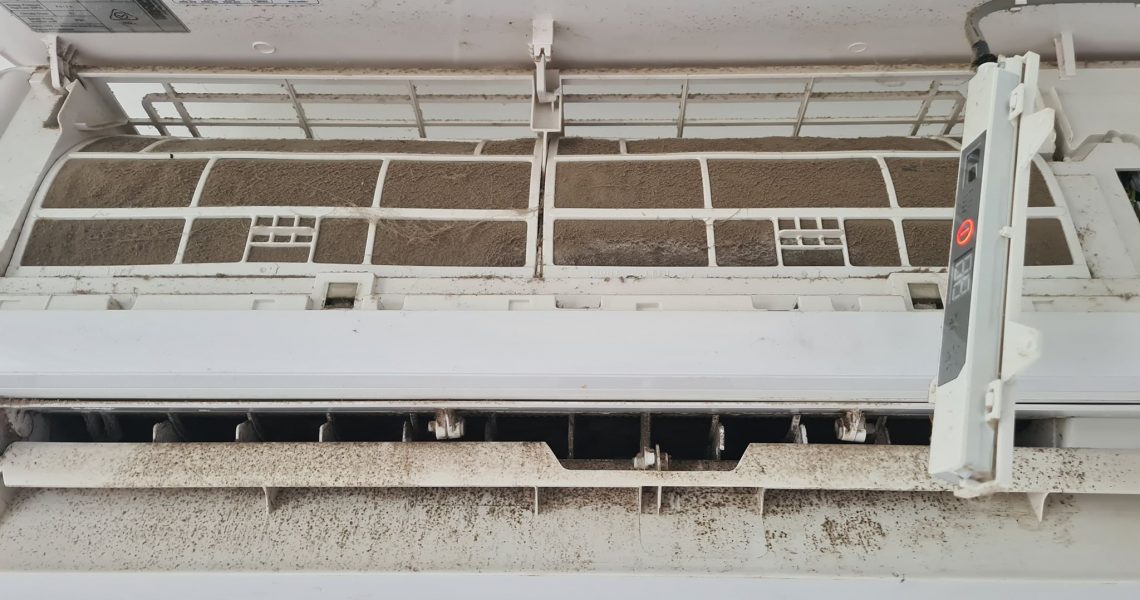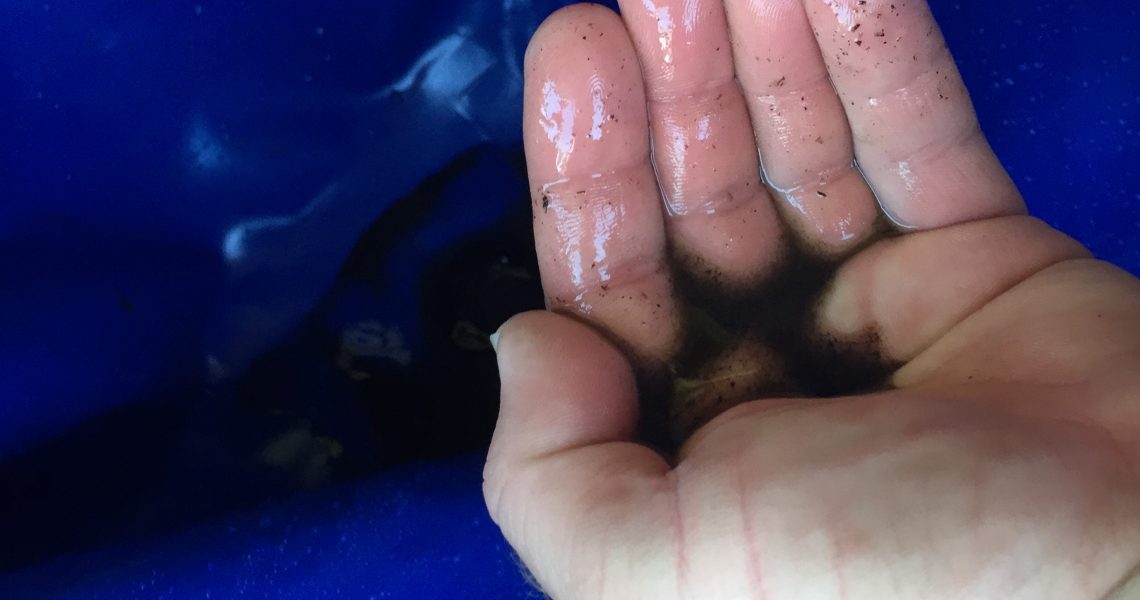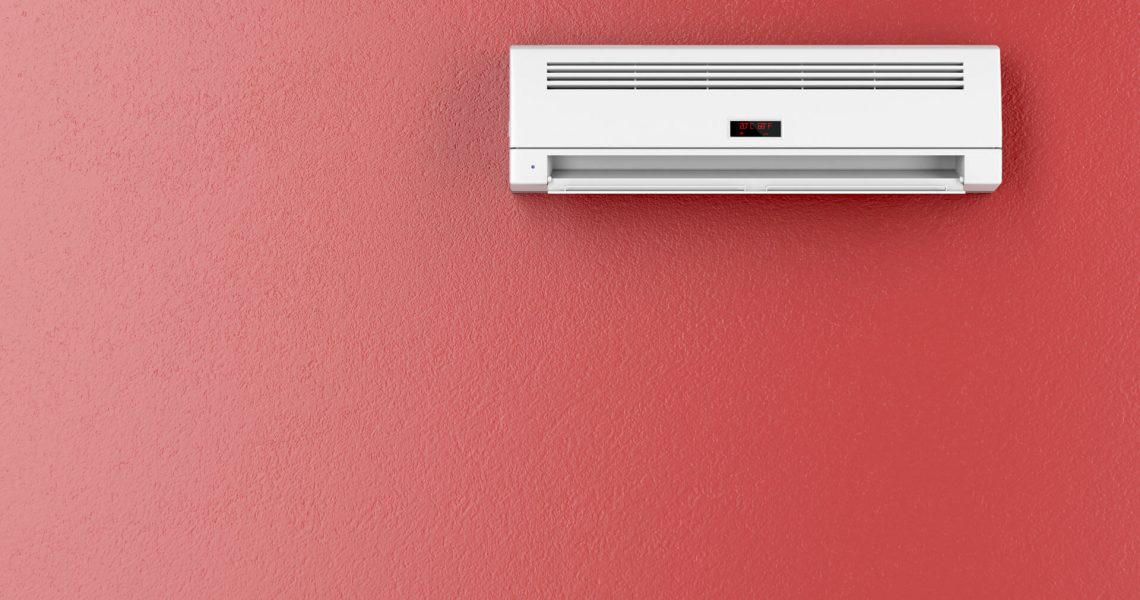What is the best air conditioning brand in Australia?
Fujitsu General Remains Australia’s Most Trusted Air Conditioning Brand.
Fujitsu General, has received the ultimate seal of approval. Once again Fujitsu has been voted by Australian’s as the 2021 Reader’s Digest Most Trusted Brand: Air Conditioning. This is the 4th consecutive year Fujitsu has been rated #1 in this category.
About Fujitsu
Fujitsu General Australia strives to consistently provide high quality, energy efficient and reliable products. This is accompanied by superior customer service. To be ‘Australia’s Favourite Air’ means to be the best air conditioning company to deal with in Australia.
Fujitsu General is making life easier for both new and existing customers.
Residential Air Conditioning Units
Whether you need a solution for a small bedroom, or large living space, our combination of technology, insight and design will provide the most effective and efficient air conditioning solution for you.
Commercial Air Conditioning Units
Being ‘Australia’s Favourite Air’ means Fujitsu not only have ideal residential solutions, but commercial solutions as well.
Focusing on air conditioning has allowed Fujitsu to further develop their expertise and insights into the commercial environment, developing cutting edge products such as our leading AIRSTAGE systems.
So whether its a block of apartments, an office, or a large commercial space, Fujitsu have a solution that best suits your needs.
Fujitsu Warranty
Fujitsu General (Aust.) Pty Limited provides a 5 Year Full Parts & Labour Warranty for all domestic and commercial Air Conditioning systems sold in Australia.
It is no wonder that Siv Air chooses to align themselves with Fujitsu Air Conditioning. Whether you need an AC supplied, installed, diagnosed or repaired, Siv Air – Cairns is able to help. We also clean/service air conditioners, helping to ensure the air you breathe remains healthy. Contact Siv Air – Cairns today on 0400 983 628 for a free no obligation quote.
Renting in Queensland? Here’s some AC tips for you
Anyone who has spent a summer in Queensland knows how important it is to access a quality air conditioner. Many landlords understand this and include AC units on their properties. If you’re renting in Queensland and your landlord has included an air conditioner as part of your lease, here are some tips you should know to make the most out of your experience.
Tip #1. Understand Who Is Responsible for What
Renters often assume that repairs and associated costs are the landlord’s responsibility. This tends to be true unless outlined differently in the lease agreement, so ensure you have a thorough understanding of it before you sign. Also, keep a copy handy for your records.
Let’s assume that your renter’s agreement states that your landlord is responsible for aircon servicing and repair. This responsibility ends if you damage the AC unit. To frame it differently, the landlord is only responsible for repairing your AC if the damage it suffered is the result of regular use or an accident. A good practice is to treat the air conditioner as though you owned it, even though you don’t.
When renting in Queensland, requesting repairs from your landlord should be done in writing and as soon as you realize there is a problem. Following these steps can avoid potential conflicts in the future. At this point, the landlord must address the issue in a timely fashion or risk incurring penalties.
Tip #2. The Renter Must Take Care of the AC
Even though your landlord may be responsible for fixing a damaged air conditioner unit, the tenant is responsible for maintaining it as part of the property they’re renting. This only applies to a residential unit in the property you are renting (you wouldn’t be responsible for a building’s HVAC system, for example). Doing your part to keep the unit operational can prevent your landlord from making repairs in the future.
With air conditioning cleaning, your landlord may have specific methods they want you to follow. If they do, stick with them. If not, following the steps outlined in the owner’s manual (with most models, you can find a copy online).
There are two critical focuses to cleaning your air conditioner: wiping the inside and washing the air filter. With the former, it’s a simple matter of removing part of the exterior (usually by removing screws in the front) so that you can access the interior. From there, it’s just a matter of using a cleaning agent approved for AC units and wiping down the insides. Doing so combats mould and algae, which can develop in moist areas.
Cleaning the air filter is just as simple. Slowly remove the filter and rinse it with running water. Wash with soap or detergent and let it air dry before returning it to the AC unit.
If you perform these tasks every three months, you’ll keep your air quality high and your air conditioner running well. It’s not just your obligation as a tenant. It’s necessary to prevent dust and mould from building up in the unit and affecting your health.
Tip #3. When Cleaning Becomes Your Landlord’s Responsibility
As a renter, your obligations to maintain the property have limits. Complex mechanical issues, such as a blocked drainage system, fall under your landlord’s responsibilities. In that case, they will most likely need to hire a professional air conditioning service like Siv Air to diagnose and fix the problem. Hiring an air conditioner cleaning service will cost less than repairing the unit (unless it’s completely broken).
Tip #4. Who Pays the AC Bill when renting in Queensland?
As necessary as an air conditioner may be to living comfortably in Queensland, the tenant is responsible for their air conditioning cost per month. Note that this isn’t the case if your landlord agrees to pay your electric bill as part of the lease.
If utilities are your responsibility, you can keep your AC cost low by regulating how you use it. Running it 24/7 will naturally lead to an increase in your average electric bill. The same could happen if your unit has automatic settings that detect changes in the temperature and activates accordingly. An easy way to keep costs and energy consumption low is to only use your aircon system when you’re home and to close the doors and windows to better trap cold air in the room your AC is in.
Tip #5. Signs To Look Out For
When renting in Queensland you should keep an eye on the AC units. Most problems with air conditioners develop gradually over time with regular use. While it may seem like they are hard to detect, you can catch them before they become serious issues if you remain vigilant. Be on the lookout for the following:
- Bad odor. If your AC begins emitting a bad smell, that could be a sign that water has built up, allowing algae and mould to grow. In most cases, you can deal with this with regular cleaning, but if the smell continues, it could mean that mould or algae have developed somewhere in the drainage system. At this point, you would need professional assistance.
- Water dripping out the front. It’s normal for condensation to appear on the side of the AC that’s facing outdoors. However, if the water is spilling out the front of the unit, that usually means there’s a failure in the drainage system. Again, it’s best to let a professional address problems like this.
- The AC doesn’t reach the appropriate temperature. If you find that your AC produces too cold or too warm air regardless of your settings, the problem may lie in the cooling unit. Technicians should be able to replace any damaged parts.
Tip #6. Renting in Queensland – Put Your Trust in Siv Air
Since 2015, Siv Air has been servicing customers in the Queensland area with domestic and commercial AC installation and repair. Whether you’re a tenant renting in Queensland or a landlord, reach out to our incredible team to learn more about how Siv Air can help you keep your home cool and comfortable this summer.
Factors to Keep in Mind When Installing a New Air Conditioner
During the hot season, having air conditioning in your home helps combat those hot 40 degree days, providing a place for you to cool down and relax. Keeping your home cool enables you to sleep better and creates a more enjoyable space overall. Once you’ve decided to install a new air conditioner, you need to do a bit of research before settling on the unit you’ll need to cool your home.
Here are nine things to consider before you take the plunge into air conditioner installation.
Concern #1: Cost of purchasing and installing a new air conditioner
The most crucial factor for most homeowners is the cost of any improvements to their homes. You may want air conditioning, but you don’t want to spend a small fortune to get a unit installed only to find out it’s not the right size.
Research multiple air conditioning units, evaluating the size, cost, energy use, and compare them to the budget you’ve set for installation.
Concern #2: Number and Size of Rooms To Cool
Depending on your home’s size or the rooms you want to cool, you can save quite a bit of money and benefit from energy savings by choosing only as much aircon as you need. You may wish only to cool frequently used rooms, or you can cool the entire house.
No matter which way you choose, you’ll need to measure each room or the entire house to determine the air conditioning unit’s size needed to cool the area. If the unit is too small, it will work overtime to keep the room cool, running continuously. It won’t fully cycle if it’s too big, meaning it will frequently turn on and off. In both cases, this drives up the cost of your electricity tariffs.
Concern #3: Insulation
Rooms without adequate insulation take longer to cool, using more energy. Cooling a room or house with less insulation requires a larger unit to perform correctly.
Many factors determine the amount of insulation your home has. These are:
- Construction materials – Double brick builds or more modern builds use materials that affect your heating and cooling efficiency.
- Installation of insulation materials – Is your insulation blown-in fiberglass or sheets?
- Window coverings and gaps – Gaps in door and window seals create areas where cooled air can leak out, and hot air can come in.
The better insulated your home is, the easier it is to cool.
Concern #4: Ceiling Height
In addition to the square footage of the room, the volume is just as important. When you have high ceilings like a cathedral or non-standard ceiling height, it takes more energy to cool the area down. If your unit is too small, it will have to work harder to compensate for this and work harder.
Concern #5: Outside Surroundings
Split system air conditioning units have one indoor and one outdoor unit that works together to cool your home. If you are considering a split system unit, make sure the area around your home has space to install the outside unit. If you’re using multiple units, you’ll need to make sure there’s room for two or more. The indoor unit is installed on a wall, ensuring you have a large enough space for this installation.
Concern #6: Air Quality
Most air conditioning units have a predefined air quality that is required. The manufacturer provides specifications of their unit. When an air conditioner isn’t working correctly, it emits a smell that makes residents uncomfortable. When it is working properly, it can increase your home’s air quality, making it more comfortable and cutting down on allergies.
Concern #7: Energy Consumption
We’ve talked about how room size, insulation, and other factors affect your air conditioning unit’s energy use, but the unit itself has its own energy consumption standards. Research different manufacturers and find the most energy-efficient unit for your space.
To locate this information, look for the EER rating of the unit. This indicates the efficiency rating. As a general rule, a rating should be between 8 to 11.5. The higher the rating, the more efficient the system.
Concern #8: Regular Maintenance
Air conditioning units require regular maintenance. Add this into your budget when considering installing air conditioning. Most installers provide additional services for maintenance, emergency repairs, and annual inspections.
Adding this into your budget keeps your unit running efficiently and helps avoid costly repairs in the future.
Concern #9: Finding the Right Installer for your New Air Conditioner
Not all air conditioning installers are created equal—research their reviews, website, units they sell and service, and experience and education.
Siv Air specialises in domestic and commercial service, installation, and repairs. We pride ourselves on offering a high level of customer service that includes in-depth product knowledge, prompt communication, cost-effectiveness, on-time delivery, and friendly dealings.Since 2015, our qualified refrigeration technicians have been helping people just like you with their air conditioning and refrigeration needs. We are insured and fully licensed to provide great value and exceptional service. Contact us today to schedule an appointment.
Commercial Air Conditioning Systems – Everything you need to know
Every commercial building has its own unique needs. If you’re building a new facility or updating your cooling system, it’s important to learn about your options and make the best choice for your space, your customers, and your staff.
We’re going to give you an overview of some of the most common types of commercial air conditioning systems. This will help you narrow down your choices so you can find a system that will give you consistent and cost-effective cooling for many years to come.
The 4 Types of Commercial Air Conditioning Systems
There are four main types of commercial air conditioning systems available that you should consider for your business. Each type of system works best in certain situations. It’s important to think about your needs and space to make the best decision for your space.
1. Ductless Split System Air Conditioners
Ductless systems use the same type of technology found in other HVAC systems, but there is one essential difference. Other split systems utilize ducts to circulate treated air through your building. In contrast, a duct-free system has to be installed in the room that it needs to cool.
This system would need to be installed in a room with an outside-facing wall. The ductless system’s blower is housed in the indoor unit — allowing it to blow cool treated air into the room.
One of the biggest drawbacks of this type of system is that it’s large, noisy, and easily visible. This can make it less than ideal for businesses that are customer-facing. Overall duct-free split systems are usually best for workshops or open areas where much of the work is performed in a single room away from customers.
2. Duct-Free Mini Split System Commercial Air Conditioners
Duct-free mini split systems are similar to their full-size counterparts that we just discussed — they are simply smaller and make less noise.
These smaller units can be a great compromise for smaller businesses that want to enjoy the convenience of a ductless split system without compromising the aesthetics of their spaces. Basically Duct-Free Mini Split System AC units are ideal for spot cooling areas where ductwork is not achievable.
However, if you have large rooms or multiple buildings, you would have to install multiple systems in order to cool your spaces efficiently. Also extra units can make this style of air conditioner less cost-effective.
Duct-free mini split systems are typically ideal for smaller spaces like kiosks, sheds, or stalls where they can have access to outside walls and smaller areas to cool.
3. Standard Ducted Split System Commerical Air Conditioner Systems
Ducted split systems are designed in three parts. There is an outdoor unit, an indoor unit, and a series of ducts that move the cooled air throughout your building.
In addition to routine maintenance, with ducted systems, you will also need to hire a professional to perform annual cleaning on your ducts. This regular cleaning will prevent unwanted buildup from accumulating in your ducts — which could compromise air quality and prevent adequate airflow.
Futhermore these types of split systems are some of the energy-efficient options for larger spaces. When they are properly installed and maintained, they can provide even cooling across every room with a vent.
4. Packed System Air Conditioners
Package system air conditioners use all of the same primary components of traditional air conditioners but they are positioned differently.
Meanwhile in traditional split systems, the compressor and condenser coils are housed in an outdoor unit. Then the evaporator is placed inside, allowing it to absorb heat from your air indoors.
By contrast, in a packaged system, all of the components are housed in a single box located against an outside wall of your building. This packaged approach makes this style of system less of an eyesore inside your business.
However, these systems can be more obtrusive outside your building. As a result, these types of systems are generally located on the roof or against a wall that is not immediately visible to customers.
Get Help Making the Right Choice for You
Businesses cater to a wide range of clientele.
- Do you have an upscale business where you have to carefully consider your aesthetic appeal for sophisticated clients?
- Have you got a workshop space where you have a large room to cool and keep comfortable for your employees?
- Do you have multiple rooms or several buildings that you need to maintain cool temperatures on?
The answer to those questions can help lead you to the right choice.
But, you don’t have to make that decision alone. Once you are ready to make a decision, Siv Air can help you evaluate your businesses needs. Siv Air specialises in brands you can trust, including Fujitsu.
Book an appointment with us at Siv Air to talk with our experienced AC technicians. We’ll explore your options with you and help you decide on the right combination of performance and efficiency for your needs.
11 Strange Facts You Probably Didn’t Know About Air Conditioning
Air Conditioning and Heating are keystone technologies in the modern age. Our comfortable offices, workspaces, and homes demonstrate how important air control is in day-to-day living.
Air conditioning has a long and fascinating history and plays an important role in everyone’s lives. Here are a few of the coolest facts you might not know about air conditioning.
1. Air Conditioning Dates Back to 180 AD
During the Han Dynasty, an inventor named Ting Huan constructed an elaborate hand-cranked air cooling machine. It featured seven large fan wheels, each over 3 meters wide. While the construction could cool down an entire hall, the person stuck cranking it probably got pretty warm.
2. We Used to Just Use Ice
Of course, even before Ting Huan’s giant fan, humans knew one reliable way to cool down: ice! For thousands of years, humans harvested large ice blocks from nature and used them to cool down living spaces, hospitals, and food storage rooms. In the early days of electric air conditioning, manufacturers would rate their products in “ice power” to help customers compare.
In the 1840s, Dr. John Gorrie recognized the therapeutic and medical value of using ice to control medicine and body temperatures. He devised a method of creating ice using water, steam, and horsepower, which laid the foundation for modern air conditioning.
3. Electric Cooling is Less than 150 Years Old
In 1882, Schuyler Wheeler invented the electric fan. Finally, no more need to convince someone to turn a crank! Wheeler was a prolific inventor, going on to develop the electric elevator and electric fire engine.
Not long after, in 1902, the first modern air conditioner was invented by William Carrier. While watching the fog billow through a Pittsburgh train platform, he was inspired to build a machine to control the air temperature and humidity at the printing press where he worked. Dryer, cooler air prevented ink from running and paper from swelling.
4. Early Air-Conditioning Was a Status Symbol
It didn’t take long for electric air-conditioning to take off. In 1903, the New York Stock Exchange became a prominent early adopter, using air-conditioning to cool the crowded trading floor.
The first residential home to have AC installed was the Charles Gates mansion in 1913. However, when Gates passed, his nearly 40,000 sq ft mansion was too expensive to find a buyer and was demolished.
U.S. President Hoover had AC installed in the White House in 1930. In 1932, the first window-mounted AC units hit the market, though they were prohibitively expensive at the time. By 1939, the Packard motor company began installing AC in their vehicles.
5. Air-Conditioning Expanded Our Frontiers
After WWII, electric air-conditioning became more affordable and accessible worldwide, spreading to Australia, Europe, and the Middle East. As home air-conditioning became an option, people could move into harsher, hotter environments like Texas, Florida, and Western Australia.
Air-conditioning and refrigeration play critical roles in medicine too. Without cooled storage and work-environments, we might not have effective treatments for diseases like polio and malaria.
6. Cold Air Saves Lives
Over the last 50 years, the recorded rate of heatstroke deaths in the summer dropped more than 80 percent. Researchers attribute this to the prevalence of accessible, air-conditioned spaces and cold water.
Allergy sufferers benefit significantly from AC systems, too, as most air-conditioners filter out pollen and other allergens. We all appreciate breathing easy at home and work.
7. The Largest AC is at Mecca
Air-conditioning has come a long way. The most extensive AC system in the world serves the Holy Mosque in Makka, Saudi Arabia. With air temperatures reaching above 38 degrees and a million or more visitors monthly, this massive installation has a cooling capacity of 135,000 tonnes. In other words, it would take 1.35 million kg of ice to produce a similar amount of cooling.
8. Air-conditioning Lead to Summer Blockbusters
Movie theaters found early popularity as a place to escape the summer heat thanks to large AC systems keeping theaters cool. Savvy Hollywood film producers took advantage of the packed seats to release their biggest films, leading to the “summer blockbuster” tradition.
9. Cold Air Takes Power
There’s not much better than getting out of the summer heat and into a refreshing, air-conditioned building. Believe it or not, we spend a lot less energy keeping buildings cool than we do on warming them up. An average house requires less than 10 million BTUs for cooling annually, while the same place uses about 40 million BTUs for heating.
In the United States, approximately 95% of new homes come with AC installed. Together, the country uses as much energy to power its heating and cooling in a year as it takes to power the entire continent of Africa.
10. Fridges Came First
Many people are surprised to learn that refrigerators came before air-conditioning. In fact, by the time William Carrier was watching the fog roll in, refrigerators were commonplace in most homes.
However, as air-conditioning technology developed, it combined with refrigeration tech to transform our grocery markets. The bountiful displays of fresh fruit and produce we’re accustomed to today wouldn’t be maintainable without air-conditioning.
11. The Strangest AC Might Be Yours
With all the different ways we make use of AC today, one thing is sure. Each air-conditioning system is unique, tailored to the specific needs of the building it serves. When your AC system needs maintenance, repairs, or upgrades, you don’t want to be discovering strange new facts about it.
Trust the experts at Siv Air. Our team has decades of combined experience working with AC systems of all types and sizes, and we’ve seen and fixed plenty of strange ones along the way. Whatever your air-conditioning needs are, we’re ready to help.
Air Conditioning Problems – Cairns, Queensland
The blistering heat of summer can be a sweltering nightmare for anyone, especially if you live in Cairns, or the surrounding Queensland area. A home with a sound AC system can make a world of difference. But what about when you have Air Conditioning Problems and it doesn’t cool well? Cooling problems are often the result of poor maintenance or damage to an older unit. Let’s take a look at some of the causes of poor cooling and address some of the concerns you may have during the summer months.
Check the State of Repair
The first thing needed to assess any required maintenance of any appliance is to look at the machine itself, starting with the exterior.
Is There Any Damage?
Exterior damage is easily noticeable and a key sign of potential internal issues. External damage with ACs normally results from an impact.
For ductless/window units, check the mounting brackets that hold the unit up (and the window itself, if applicable). If it has fallen before, it will happen again if the mounts themselves are damaged. Depending on the amount of exterior damage, significant collateral interior damage may have occurred, and the unit may need replacing.
If you find exterior damage on your air conditioner unit, make sure it isn’t leaking any fluids or gasses.
Check around the surrounding area for debris from trees or the building above; a falling tree branch or piece of masonry can both damage your unit and the mounts it sits on.
For larger central air units, as above, check around for fallen debris and create a plan to deal with the issue. Sometimes this can be as simple as installing a metal-framed grate above the unit to protect it while enabling unrestricted airflow. If falling debris is a more serious concern, you may have to move the unit entirely.
Are There Any Fluids Leaking From It?
If your unit is leaking fluid that does not appear to be evaporating, it is most likely water. This means that there is potentially a problem with the drain line, which will require a call to a repair technician.
Replace the Filters
Filters are a vital part of any AC system. They filter and help purify the air they cycle by removing dust, dirt, and microbes. Filters need to be regularly cleaned or replaced, especially in the summer. A clogged filter will lead to reduced efficiency and higher running costs.
Get a Licenced Professional to Assess the Wiring
As with all appliances, check the wiring for signs of fraying or scorching. Not only can this lead to permanent fire damage, but it may also be causing the machine to turn on or off at unintended times, wreaking havoc on the efficiency level.
Cleaning the Unit
Another essential step that most don’t think of right away is thoroughly cleaning the unit’s exterior. Focus on cleaning the coils on the unit to ensure that heat exchange is at maximum efficiency. A garden hose can clean the unit’s coils as long as you take care to prevent any exposed electrical components from getting wet.
Double-check the condition of the fins on the unit and straighten any bent ones with a fin comb or flat head screwdriver. Take care as these are very delicate and bend easily. Over manipulation can result in broken fins and reduced efficiency. Ensure the ground around the unit is clear of debris like leaves, etc.
Choose the Right Temperature
In Far North Queensland, the most suitable temperature to use is 24C all year round.
Remember that the higher the external temperature, the faster the indoor temperature will rise, causing a higher load on the equipment. Keeping your air conditioner set mid range will help save you money.
If you have Air Conditioning Problems, Consult a Professional
At Siv Air, our qualified technicians have the expertise needed to diagnose and repair faulty systems to get them back to peak performance. We also offer air conditioning services which help to improve the overall efficiency of your system. Regular AC Maintenance flushes out pollutants, dirt and other contaminants that can lurk in your air conditioning unit.
We know how important it is to keep your home cool and keep your energy bills low. Whether it’s for a small bedroom, large living area or commercial space, Siv Air can not only install but supply you with affordable air conditioning systems from brands you can trust. If it’s time to upgrade that old AC unit, we’ve got you covered.
Contact us to learn more about how our air conditioning services can help you stay cool all year long.
Health Hazards of a Dirty Air Conditioner
How a Dirty Air Conditioner Can Harm Your Family’s Health
It’s easy to forget about your air conditioner. If you’re able to breathe easily inside your home and you change the filter regularly, no problem, right? Not necessarily. Your air conditioner is essentially your home’s lungs, constantly collecting and filtering dust, hair, and more. Dirt accumulates over time, and before you know it, the air starts to smell a little funky. By then, you’re already breathing in years’ worth of debris. Yuck! A dirty air conditioner can negatively impact your family’s health, which is why a deep cleaning may be in order.
Poor Air Quality Leads to Respiratory Issues
If you have allergies, you probably want your home to be a safe refuge from pollen and other allergens. But if your air conditioner is dirty, it’s likely circulating those problematic particles throughout your home. Your filter can only do so much. If your AC is dirty, your allergies could be aggravated and you could experience other symptoms, such as frequent sneezing and coughing.
Dirty ACs can also raise your risk of respiratory disease. Studies have shown that they can contain everything from pesticides to heavy metals to dust mite feces. Constantly breathing in particles of mould, dust, dander, pollen, and synthetic materials can damage your airways and contribute to lasting health problems.
Dirty ACs Attract Pests
You likely clean your home and garage regularly to prevent rats, roaches, and other vermin from moving in. But what’s happening above the ceiling? Dirty ACs are the perfect breeding ground for pests who can then make their way into your home. Worse, they leave droppings and dander, and you could end up breathing in particles from that nastiness.
Also, these animals often carry pathogens and allergens, so their presence could make you sick even if you never come into direct contact with them. If your air conditioning system is dirty, you likely have some unwelcome and filthy house guests. And if they die inside your ACs, you’re in for some disgusting smells and potential pathogen spread.
Clogged Coils and Filters Lead to Moisture Build-up
Ideally, your home’s interior stays nice and dry. Your air conditioner plays a big role in that. When the evaporator coils are dirty, the condensation produced as the unit cools your home will accumulate. If you have a split system, you could have your drain back up with water, causing moisture to spread throughout the home.
As you might imagine, this causes some serious problems. High humidity levels make your ACs ideal for mould and mildew, which can contribute to respiratory problems. Bacteria such as Legionella also love warm, damp environments, and you definitely don’t want to breathe those in. Also, a dirty air conditioner will have to work harder, which means it’s likely to operate less efficiently — and therefore get even dirtier.
How to Clean Your Air Conditioner
As you can see, changing your filter is not nearly enough. Think of your air conditioner as a car. With regular use, its parts wear down and get clogged or dirty. You wouldn’t drive many kilometres every day and never change the oil or tires, right? Yet many people let their air conditioners go years without a proper cleaning.
The air wells, coils and barrel fans are the main areas where dirt can accumulate. This means that the unit itself wont’ work as well, and you’re inviting mould, vermin, and pathogens to take up residence within the system. Dust and debris don’t go away on their own. To get rid of them, you need to make aircon servicing a regular part of your home maintenance.
To fully protect and clean your system, you’ll need a professional air conditioner cleaning service. They have special equipment and techniques to remove debris and restore your air conditioner’s full functionality. If you’ve never had a deep cleaning done and you’ve had your system for at least a year, you’re definitely overdue.
Takeaways
Don’t delay — the health hazards of dirty aircons can sneak up quickly! A dirty air conditioner presents major concerns for your health and safety, and the problem won’t go away without professional treatment. Changing your filter is not enough. For optimal indoor air quality, call in professionals to deep clean your system. If it’s been a while, we recommend hydro cleaning, which allows all parts of the system to be cleaned spotless.
For professional air conditioning in the Cairns area, reach out to Siv Air. Our hydro cleaning service includes a complete inspection of your system and advanced sanitation techniques. It’s time to start breathing easier. Request an appointment today!
Does Your AC Smell Strange? Funny AC Smells and What They Mean
Turning on your air conditioning unit may seem like the perfect complement to a hot and sweaty day– that is, until you start noticing a funky smell fill the room. In the sunny and sometimes humid city of Cairns, such smells can mean going through a dreadful experience of either bearing the stench, or enduring the heat.
It is not a problem to be shrugged off, either, as these odors are clues to underlying issues your air conditioning system might need help with. Not only that, but these odors can be toxic to your health.
Thankfully, these “odor clues” are distinct and familiar smells that can lead you straight to the root of the problem. Ready to see the kinds of smells to watch out for? If so, read on.
Mildew / Mould / Dirty Socks
If your nose picks up the scent of mildew, mould, or even dirty socks whenever you power up your AC, it is very likely that the moisture inside your AC system has pooled up enough to cultivate mould and other microbes, all of which are not good for your lungs when inhaled. These microbes can grow anywhere, from your AC’s filters to its ducts and/or drain pans. In order to thoroughly clean through your AC system, it is best to call professionals who know the ins and outs of any given air conditioning unit.
Rotten Eggs / Trash
Believe it or not, your AC unit is an attractive home to little critters such as birds, insects, and lizards. Some of them, however, don’t make it out alive, eventually causing your AC to emit an odor similar to the scent of rotten eggs and trash. To reduce the odds of having the stench stick to any clothes and furniture, turn off the AC and open the windows to clear out the smell. It is best to call aircon servicing specialists to handle removing the unfortunate animals from inside your AC system. Also calling pest control specialists and inquiring about pest-proofing can help prevent this from happening in the future.
Burning
Does it smell like something is burning? Turn off your air conditioning immediately as this is a huge cause for alarm.
Your AC unit is made up of electrical wires and components, so chances are, something inside your AC might have overheated, short-circuited, or even caught fire. To stay on the safe side, call your nearest fire department. Once the scent dies down, call a professional aircon servicing team to investigate the insides of your system.
Professional Aircon Servicing for your Cairns Home!
Siv Air’s aircon servicing professionals are trained to handle your AC troubles with our expert know-how and top notch equipment. We value your safety; every service we offer comes with a thorough inspection of your AC unit, from checking blockages to making sure that the proper electrical current is being drawn. Another pride of ours is that we use all-natural tea tree products which not only help kill bacteria and other microorganisms to be wary of, but they also ensure that the cleaning process and subsequent AC usage will not chemically harm you in any way.
With services ranging from basic cleaning to an even more intense hydro cleaning, and finally going above and beyond with strip and chemical cleaning, rest assured, your AC will be clean as new, guaranteed to give you cleaner, healthier, and better air. Contact us today for a quote from one of our specialists.
Do I Need to Replace My Air Conditioner?
Your air conditioning system won’t last forever. At some point, you will need to replace the system for the sake of efficiency, renovations, or even due to outright failure of the unit. It’s important to realize when your air conditioner is near the end of its useful life before it completely breaks down and you’re left sweating in the heat.
Let’s take a look at some telltale signs your air conditioning system needs replacing:
Signs You Need A New Air Conditioner
There are some rather clear signs that your air conditioning is not functioning the way it should. In some cases, only a minor fix is needed. Other times, the unit as a whole needs to be replaced. Here are the signs to look for when deciding if you need a new air conditioner.
1. It’s Producing Strange Sounds
A fully functional air conditioning system should operate in almost complete silence. If you’re familiar with your unit, you’ll recognize the little sounds it makes as it cycles. These sounds will be a regular part of your air conditioning’s life.
It’s when you hear other noises different from these normal sounds that you need to inspect the unit. Small noise changes could simply be the sign of something that needs repair. For example, there could be a loose part inside the unit, the fan may not be working properly, or an internal component could be clogged with dirt.
However, if the noise is more out of the ordinary such as grinding, rattling, screeching, ticking, or buzzing, this can indicate a serious problem that means you need to replace the unit.
2. Leaking And Excess Moisture
For some air conditioners, a small amount of condensation or water dripping on the unit is normal. However, your air conditioning unit should stay dry when it’s being used and when it’s idle. If you notice a leak, a sudden increase in condensation, or moisture inside the house, it may be time to look for a replacement.
Electrical components and water do not go well together. As such, you should have the unit inspected by a professional air conditioning technician straight away. Units can spring refrigerant leaks, which should only ever be handled by a professional due to their potential health and safety risks. Your air conditioning repair technician will locate the source of the leak and determine if a new unit is the best choice or if a simple repair will do the trick.
3. Reduced Airflow
Check your air conditioner to see if there is little or no cool air coming out of the vents. A noticeable decrease in airflow could be a sign that your air conditioner’s compressor is near the end of its life.
If your thermostat is set to a moderate temperature and your home is still too warm, then your air conditioning unit is not working at its intended level. Check the filters first to see if they need to be replaced. If they aren’t to blame, however, your unit may have reached the end of it’s efficient life, and it may well be time to replace it.
4. Fluctuating Temperatures
A common problem with an older air conditioning unit is that it simply won’t cool or heat. It may still produce good air levels, but the air isn’t coming at the temperature it should based on the settings. You may occasionally experience warm air on a cool setting (a cause for concern), but if your unit stops producing any cool air altogether, it’s time to call in a professional to have a look. The same applies to a lack of heating. In some cases, the problem may be low refrigerant levels. However, the presence of warm air when the system is set for cooling can indicate a big problem such as a damaged compressor.
You’ll also want to look out for inconsistent temperatures. Your air conditioner is designed to provide consistent air temperatures at the settings you select. When certain areas become cold zones, and others don’t get any cool air at all, your air conditioning unit may need to be replaced. If your system is producing inconsistent or warm air, inspect the filters, condensation drains, valves, and coils for airflow obstructions.
5. Your Energy Bills Are Increasing
Even when your air conditioning seems to be functioning fine, one of the clearest signs there could be a serious problem is your energy bill. If your bill has suddenly increased for no apparent reason, there could be a problem with your unit.
Conduct an energy audit and consider if there are other factors that could be responsible for the increase. If it appears that your air conditioning is the reason behind a spike in energy costs you will want to determine why it is losing efficiency.
In some cases, it could be overworking. Reduced cooling capacity will raise energy costs as your unit struggles to maintain your desired temperature. You can try replacing the filters, cleaning the air vents, and checking for knots in the condensing coil. For those with older homes with older AC units, it could also be the case that your unit is near the end of its service life and simply lacks the efficiency to cool your home properly as a result.
6. Strange Smells
Like odd noises, unusual smells can be a sign your air conditioning or ducts need replacing. Unpleasant smells can mean that the unit’s insulation is damaged or that the ductwork is moldy. Mold, mildew, and dirt inside your unit can circulate contaminated air throughout your home and cause serious health issues for you and your family.
Strange smells could simply be the result of a filter that needs replacing. Check the filters first but if the smell persists it may be time to replace the unit or your ducting.
7. It Need Frequent Repairs
Your air conditioning unit should be serviced once a year to ensure it’s in good condition. You may need an extra repair here or there but if your unit is in constant need of mending you will likely be better off replacing it with a new one. This is especially true if the unit needs a major repair after its warranty expires. Opting for a new air conditioner is often more cost-efficient than expensive repairs on an older unit.
8. The Unit Is Old
In Cairns air conditioning is a must, especially in the hotter months. The average air conditioning unit lasts between 7 and 10 years, depending on its usage and environmental conditions, and the average warranty from major manufacturers is only 5 years. There have been a lot of advancements in technology in the past decade, so if you’re using an older model you’re missing out on some useful features and incredible energy efficiency improvements. Newer models are built to be much more energy-efficient and come in more compact styles as well. If you have an older unit, consider making an upgrade to take advantage of these benefits. It may end up saving you far more than the cost of the unit.
Don’t Wait To Take Care Of Your Air Conditioning Unit
If any of these issues apply to your unit, it’s time to have it inspected by a professional. Siv Air offers a range of air conditioning services to help ensure your aircon is up and running when you need it most.
Our qualified technicians have the expertise needed to diagnose and repair faulty systems to get them back to peak performance. We also offer hydro clean services to improve the overall efficiency of your system and flush out pollutants, dirt and other contaminants that can lurk in your air conditioning unit.
We know how important it is to keep your home cool and keep your energy bills low. Whether it’s for a small bedroom, large living area or commercial space, Siv Air can not only install but supply you with affordable air conditioning systems from brands you can trust. If it’s time to upgrade that old AC unit, we’ve got you covered.
Contact us to learn more about how our air conditioning and refrigeration services can help you stay cool all year long.



